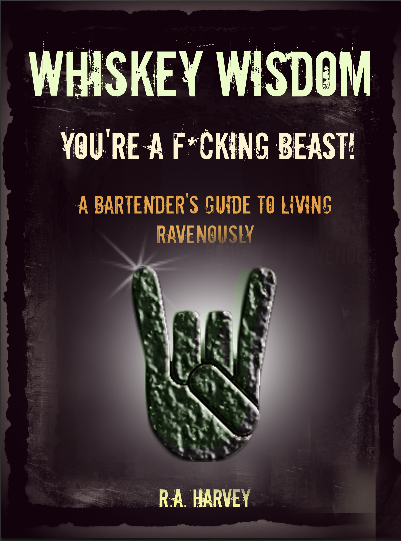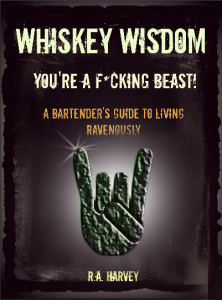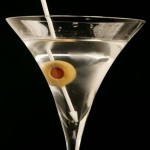
Well, are you, punk?
Or are you boring as hell?
How, furthermore, can you tell?
How can you tell if you’re an inveterate bore, or if you’re just in a kind of long-term funk?
Much of what we hear about commanding attention and the power to fascinate is theoretical and abstract, a sort of psychological jargon: fascination triggers, hotspots, personality tests and the like.
Let us, for once, get concrete.
Here are 7 differences between the fascinating person and the boring piece of meat:
1. Fascinating people have many activities they enjoy and become good at, which gives them a greater wealth of material to mine.
Boring people have one or perhaps two.
Diversify, therefore, your activity portfolio.
2. Fascinating people communicate what most others can’t — or communicate it in ways most others don’t.
Words, contrary to popular belief, are not primarily for communicating — which is their secondary function. Their primary function is for clarity of thought.
Before one can communicate clearly, one must have something to communicate clearly.
Language brings about this process.
The desire for clarity presupposes the desire to be understood, and this is why the ability to communicate clearly — in writing or in speech — is one of the surest signs of intelligence there is.
And intelligence, as you know, is always fascinating.
3. Fascinating people aren’t afraid to try new things — which means:
They’re not only willing to break out of their comfort zone but also motivated to do so. Why?
Because they know that comfort breeds complacency.
Interesting people, understand, are, to one degree or another, adventurous. They like to get out and explore.
Life is largely an adventure — provided you treat it as such.
4. Fascinating people are au courant.
They keep up-to-date on at least some news.
Which is why as a bartender you often find yourself charmed by those customers who have a certain knowledge of pop culture: because this, too, shows that an effort is being made to stay informed.
Thus:
5. Fascinating people are knowledgable.
Boring people are poorly informed — and so they’re unable to hold up their end of the conversation.
Being poorly informed, let it be noted, is entirely within each person’s control.
The better you’re informed, the more you have to talk about.
The more you have to talk about, the more fascinating you are.
Which is not to imply that fascinating people blast through one conversational subject after another.
It means, rather, that the deeper down your knowledge goes, the greater your conversational pow-uh.
6. Fascinating people don’t conform
Independent thinking is non-conformity.
Conformity is about as boring and banal as it gets.
Fascinating people have the confidence to think for themselves.
Boring people do not.
Fascinating people like variety.
Boring people prefer the same old.
Conformity is the same old.
It is also the opposite of courage. It takes courage to respond to non-thought — which is to say, conformity — as it takes courage to break away from the pack.
It takes courage to think for oneself.
If you’re one of those rare courageous people, the world will be riveted by you.
7. Fascinating people are driven and disciplined.
Boring people are passive.
Discipline is habit, and habit is a choice.
This is precisely why no one is fated to be boring — not even close.
How, then, does one go about expunging inveterate vapidity?
Studies show that you can bore people in two fundamental ways: both in what you say and in how you say it.
Being boring, in other words, can be a matter of style or a matter of subject. Combine those two things into one and it’s downright deadly.
The qualities that make someone fascinating, or beguiling, or hypnotizing, or mesmerizing are — and this is important — a side-effect. They are a by-product: specifically, a by-product of a life lived well, a life lived interestingly.
The real insight into the power of fascination is this:
The fascinating person is not living her life to be fascinating: she’s living her life, rather, in a way that cultivates her living potential, and that’s why age cannot wither her, nor custom stale her infinite variety.
Make no mistake, there are in the universe an infinite variety of fascinating things upon which you may fix your attention.
To be fascinating, therefore, you must come to recognize life as the adventure it is, and you must then proceed accordingly.
You must crave new experiences and desire a deeper understanding of the world.
Decide what you want and figure out how to get it.
Boring people don’t have big dreams. They actually believe it when they’re told, as we all are at one time or another, that they probably can’t do it.
Fascinating people, upon the other hand, believe no such thing.
Fascinating people shoot for the stars — and often reach them. If they don’t reach them, they become incontrovertibly more fascinating just in their singleminded striving.
Fascinating people picture their lives as they want their lives to be, and then they focus their energy on shaping their lives in that way.
Don’t let others decide your future for you. Don’t give people that kind of control over you. This is not only NOT fascinating: it’s fatal.
Be the master of your own fate. Be the captain of your own soul.
Because, in the final analysis, fascinating people are the shapers of their own soul.
And that is why they seem to others not fractured but whole.
Excerpted from my forthcoming book Whiskey Wisdom: A Bartender’s Guide to Living Ravenously




